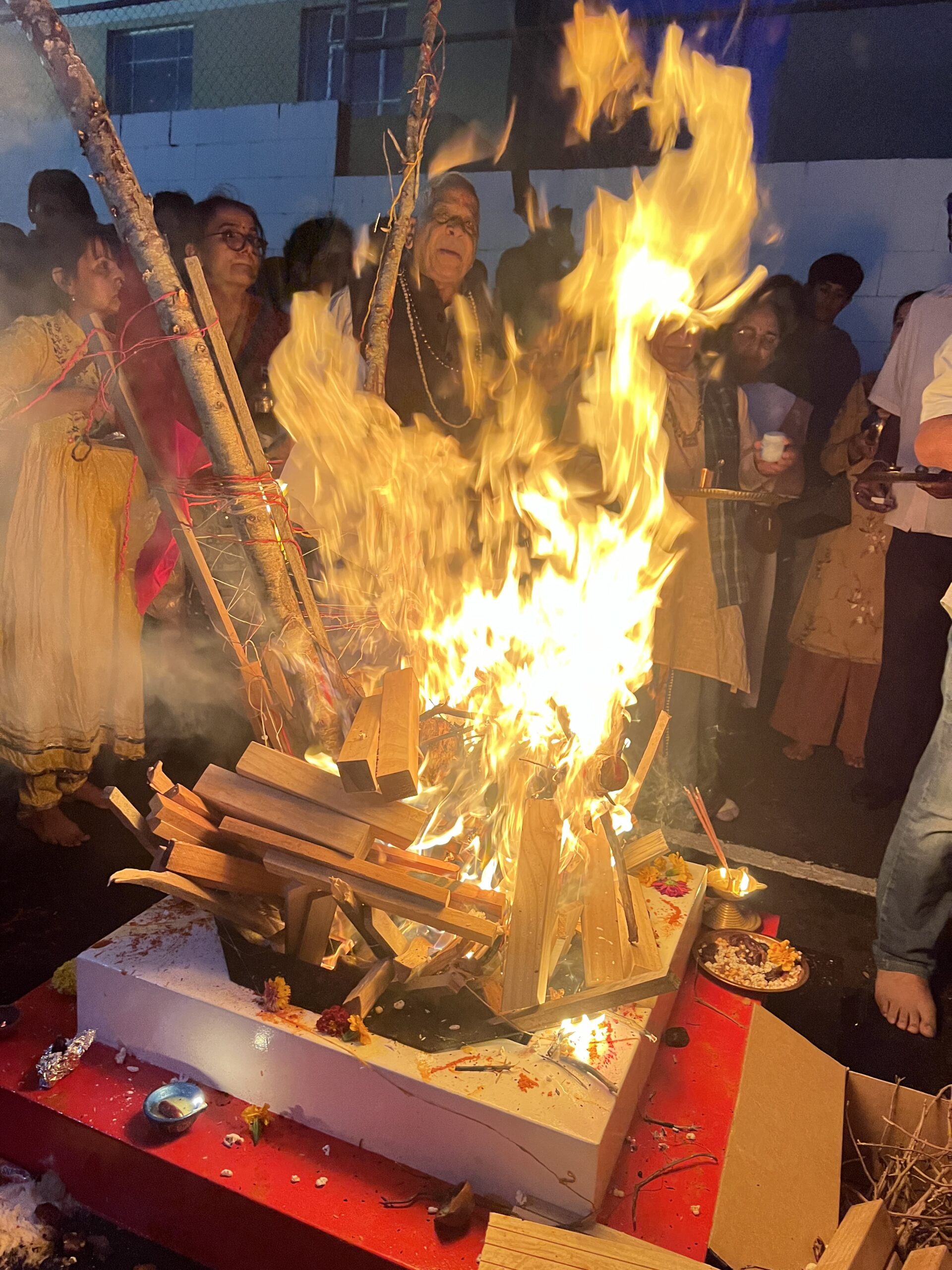This year, the Hindu festival of colours, known as Holi, swept across the globe on Monday 25th March and Tuesday, 26th March, bringing with it immense joy and fervour wherever Indian communities thrive. Rooted deeply in tradition, this vibrant celebration typically falls within the Hindu month of Phalgun, a period that usually aligns with the middle of March according to the Gregorian calendar.
At the heart of Holi’s festivities lie the sacred birthplaces of Lord Krishna, nestled in the ancient towns of Mathura and Gokul. Here, the jubilant spirit of Holi permeates the air for the entire month of Phalgun, as people of all ages and genders come together to revel in the arrival of spring, the bonds of brotherhood, and the warmth of familial connections. In the northern states of India, where the changing seasons signal the onset of crop cultivation, Holi marks a time of renewal and anticipation, celebrated with unparalleled zeal and enthusiasm.
Beyond the borders of India, the spirit of Holi transcends geographical boundaries, resonating with Indian diaspora communities around the world. In New Zealand, for instance, members of the Indian community joined hands with friends and neighbours from diverse backgrounds to celebrate Holi with infectious enthusiasm. From Auckland to Wellington, the festival was embraced with open arms, weaving together the vibrant colours of Indian culture with the rich tapestry of New Zealand’s multicultural landscape.
In Auckland, the celebrations unfolded with fervour as temples and community centres became vibrant hubs of activity. Holika Dahan, the ceremonial lighting of bonfires, marked the commencement of festivities, symbolizing the triumph of good over evil. On the following day, the air was filled with laughter and excitement as people gathered to partake in the playful tradition of applying colourful powders and drenching each other with water, heralding the arrival of spring in all its colourful splendour.
At Bharatiya Mandir, New Zealand’s oldest Hindu temple, Holi was celebrated like every year with unparalleled exuberance and joy. Over one thousand people thronged Bharatiya Mandir on the Holika Dahan day and the festivities went on till 10 in the night. This year marks the unprecedented number of devotees visiting Mandir on the day of Holi. The spirit of Holi infused every corner of the temple, as people exchanged warm greetings, shared sweets, and danced to the rhythmic beats of traditional music.
The celebrations at Bharatiya Mandir were not merely a reflection of cultural tradition but also a testament to the enduring spirit of unity and inclusivity that defines Holi. Amidst the kaleidoscope of colours, barriers dissolved, and bonds were strengthened, as people from different walks of life came together in a shared celebration of joy and camaraderie.
The festivities at Bharatiya Mandir also provided an opportunity for spiritual nourishment, as participants partook in the weekly Tuesday Mahaprasad, adding a sacred dimension to the celebrations. As plates were filled with delicious offerings and shared among friends and family, the essence of Holi—of love, abundance, and communal harmony—became palpable, transcending the boundaries of religion and culture.As the echoes of laughter and the hues of Holi faded into memory, the spirit of the festival continued to resonate, serving as a powerful reminder of humanity’s capacity for joy, resilience, and renewal. Across continents, from bustling cities to remote villages, Holi’s message of unity and inclusivity echoed, bridging divides, and bringing people together in a shared celebration of life’s vibrant tapestry.
In essence, Holi is more than just a festival; it is a celebration of the human spirit—a testament to our ability to find joy and connection amidst the complexities of life. As we bid farewell to another year of Holi, let us carry its spirit with us, spreading love, laughter, and positivity wherever we go, and embodying the timeless message of Holi throughout the year.
-Yugal Parashar



